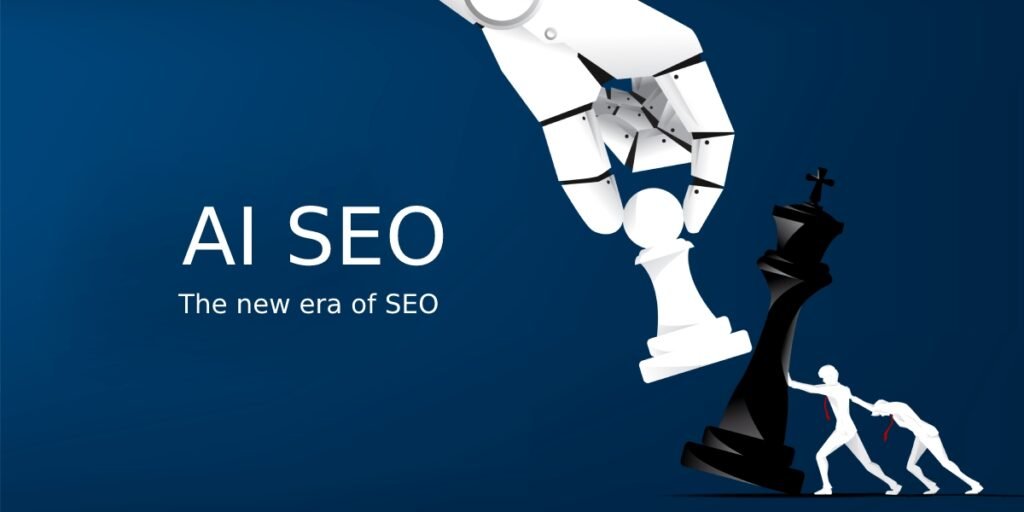How to Optimize Your Website for Search Engines (SEO)

In the digital age, the online presence of your business or personal brand is pivotal for success. It’s not just about having a website; it’s about making sure that it’s easily discoverable by your target audience. This is where Search Engine Optimization (SEO) plays a crucial role. This comprehensive guide will take you through the process of optimizing your website for search engines to improve your online visibility and attract more visitors.
Read More: How to Build an E-Commerce Website: A Guide to Online Selling
Contents
Understanding SEO

What is SEO?
Search Engine Optimization (SEO) is a multifaceted strategy that involves improving your website’s visibility in search engine results. This is achieved through a combination of on-page and off-page optimizations, as well as technical aspects of your website. The ultimate goal is to rank higher in search engine results, making it easier for potential visitors to find your site.
Why is SEO important?
The importance of SEO cannot be overstated in the digital era. Here’s why it matters:
- Organic Traffic: SEO is the primary driver of organic (non-paid) traffic to your website. When your site ranks well, it attracts visitors who are actively searching for the content, products, or services you offer.
- Cost-Effective: Compared to paid advertising, SEO is a cost-effective way to generate traffic. While it requires an initial investment, the long-term benefits are substantial.
- Credibility and Trust: Websites that rank well are often perceived as more credible and trustworthy by users. People tend to trust search engine results.
- Competitive Advantage: Your competitors are likely investing in SEO. To stay competitive, you need to optimize your website as well.
Keyword Research
How do I find relevant keywords?
Keyword research is the foundation of SEO. To get started, use keyword research tools like Google Keyword Planner, SEMrush, or Ahrefs. These tools help you identify the words and phrases people use when searching for content or products related to your business.
Long-tail vs. short-tail keywords
Long-tail keywords are more specific and generally result in higher conversion rates. For example, “best gaming laptop under $1000” is a long-tail keyword. Short-tail keywords, on the other hand, are broader and more competitive, like “gaming laptops.” It’s essential to strike a balance between these two types of keywords.
On-Page SEO
Optimizing content
Content is king in SEO. Your content should be high-quality, engaging, and informative. It should naturally incorporate the keywords you’ve researched. Properly formatted headings, subheadings, and relevant images can also improve the user experience.
Meta tags, including the title tag and meta description, are crucial for both search engines and users. The title tag should be concise and include your primary keyword. The meta description is a brief summary of the page’s content, enticing users to click on your link.
Off-Page SEO
Link building
Link building is the process of acquiring backlinks from other websites. These backlinks serve as endorsements for your website’s content. High-quality, authoritative backlinks can significantly boost your website’s authority and search engine rankings.
Social signals
While not a direct ranking factor, social signals like likes, shares, and comments on social media can indirectly influence your website’s SEO. They indicate that your content is relevant and popular, which can result in higher search engine rankings.
Technical SEO
Mobile-friendliness
With the increasing use of mobile devices, ensuring your website is mobile-friendly is vital. Google gives preference to mobile-friendly sites, making this an essential aspect of SEO.
Page speed
A fast-loading website not only provides a better user experience but also positively impacts SEO rankings. Google considers page speed in its algorithm, so optimizing your website for speed is a must.
Local SEO
Google My Business
For local businesses, setting up and optimizing your Google My Business listing is crucial. This ensures that your business appears in local search results, especially for “near me” queries.
NAP citations
Maintaining consistent Name, Address, and Phone (NAP) information across various online directories and platforms is essential for local SEO. This consistency helps search engines verify your business’s legitimacy and credibility.
SEO Mistakes
High-quality and relevant content
Content creation is an ongoing process. You should create content that is tailored to your audience’s needs, answering their questions and providing value. High-quality and relevant content is more likely to be shared and linked to, further boosting your SEO efforts.
Content marketing
Promoting your content through various channels, such as social media and email, is crucial for extending your reach and improving your website’s authority. Content marketing helps you connect with your audience and attract more visitors.
Monitoring and Analytics
Google Analytics
Google Analytics is a powerful tool that allows you to track the performance of your website. It provides valuable insights into visitor behavior, traffic sources, and more, enabling you to make data-driven decisions to improve your website’s performance.
SEO tools
Several SEO tools, like Moz and Ahrefs, can provide in-depth insights into your website’s performance. They can also suggest optimizations and improvements based on competitive analysis and industry trends.
SEO Best Practices

White hat vs. black hat SEO
It’s crucial to adhere to white hat SEO practices, which are ethical and align with search engine guidelines. Avoid resorting to black hat tactics, as they can result in penalties and harm your website’s reputation.
Common SEO Mistakes
To succeed in SEO, it’s essential to avoid common mistakes, including:
- Keyword Stuffing: Overloading your content with keywords can harm your rankings.
- Low-Quality Backlinks: Acquiring low-quality backlinks can have a negative impact on your site’s authority.
- Neglecting Mobile Optimization: With the rise of mobile users, ignoring mobile optimization can result in a poor user experience.
Conclusion on Search Engines
Optimizing your website for search engines is a continuous process that requires dedication and patience. By following these steps and best practices, you can enhance your website’s visibility and attract more visitors. SEO is an ever-evolving field, so staying updated with the latest trends and algorithm changes is crucial for long-term success.
Read More: How to Build a Website from Scratch: A Step-by-Step Guide
FAQs
- How long does it take to see SEO results? SEO results vary, but it may take a few months to start seeing significant improvements.
- Can I do SEO myself, or should I hire a professional? You can do basic SEO yourself, but for more complex strategies and optimal results, hiring a professional is advisable.
- Is SEO a one-time effort, or does it require ongoing maintenance? SEO is an ongoing effort, as search engine algorithms evolve, and competition changes.
- What are the most critical ranking factors in SEO? High-quality content, relevant keywords, and backlinks are among the critical ranking factors.
- Are there any shortcuts to SEO success? No, SEO success is the result of consistent, ethical practices, not shortcuts or quick fixes.
By implementing the strategies outlined in this article and avoiding common mistakes, you can improve your website’s SEO and boost your online presence.








One Comment